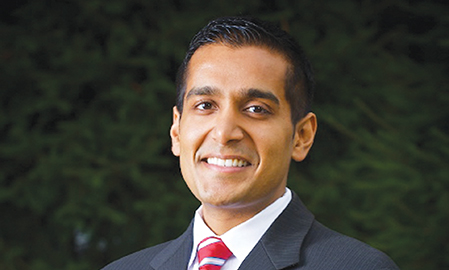The adoption of EHRs has been shadowed by a fair amount of criticism among some doctors who say they’re too onerous and take away from time spent with patients. Amid these well-documented growing pains, it might seem like the Obama Administration has invested $6.5 billion in health IT solely to trade pre-existing paperwork for e-paperwork. Yet, there’s some evidence that the tide is beginning to turn, that this technology is beginning to free up a physician’s time rather than simply consume it.
That’s the goal behind Merck’s recent partnership with Practice Fusion, one of the nation’s largest EHR platforms, to introduce a clinical decision-support program into the group’s population health management platform.
The program analyzes a provider’s patient population to see who may be eligible for a vaccination as per CDC recommendations. The system also checks if they’re not vaccinated for an important health reason, and if a care gap is identified, the doctor is alerted. The parties announced the partnership late last month.
“Technology, when it’s at its best, simply makes people more efficient,” Chris Hogg, AVP of data science for Practice Fusion tells MM&M, “If we’re successful we’ll have the same impact, that we’ll free doctors and offices up towards higher levels of care, rather than reading all their charts to see who’s due for a vaccination.”
Hogg leads the data science group at Practice Fusion and helps to understand the data which already exists in the platform, and then works to leverage it to create new partnerships, like population health management.
The program, he explains, takes CDC recommendations and turns them into rules, and then takes those rules and “turns them into code, and when a patient sees a provider, we run that patient through the code essentially and see whether they trigger a recommendation for a vaccine.”
In effect, the program allows a doctor to not only check if someone is vaccinated, but to also observe how the entire practice is doing in keeping its patients vaccinated.
Merck’s chief medical information and innovation officer, Dr. Sachin Jain, who spearheaded the initiative, told MM&M, “This is an idea I’ve had in my mind for a long time. The greatest promise for the healthcare industry is to use technology to help clinicians make the right decision at the point of care. There is more information to know than ever before and technology is an incredible tool for digesting large amounts of information.”
Practice Fusion’s network of over 100,000 primary care physicians was the main attraction for partnering with the vendor as well as the model’s “flexible architecture,” Jain said, noting that the drugmaker is pursuing the program with other EHR vendors.
“A lot of times when computer systems are built, they go through a new version release every two or three years, and the programs don’t iterate in real time,” Jain explained. “But because Practice Fusion is a web-based platform, it’s constantly improving and creates opportunities to see how things work as they’re happening.”
And seeing how it all comes together is an important step moving forward, he said, as this project is really the jumping-off point for the company’s broader goals which involve not only working toward improved outcomes but also improving the experience with its medicines as a whole. “These are early days, we’re really entering into new territory.
“We’re in the music-making business I like to say—and our medicines and vaccines are our music—but we don’t spend enough time thinking about the iPod it goes into,” Jain quipped. “This partnership is about thinking about the iPod and making it easy for consumers to access the things they need—and frankly—enjoy the experience of using them. I think technology can be an important enabler in that way.”
From the June 01, 2014 Issue of MM+M - Medical Marketing and Media








